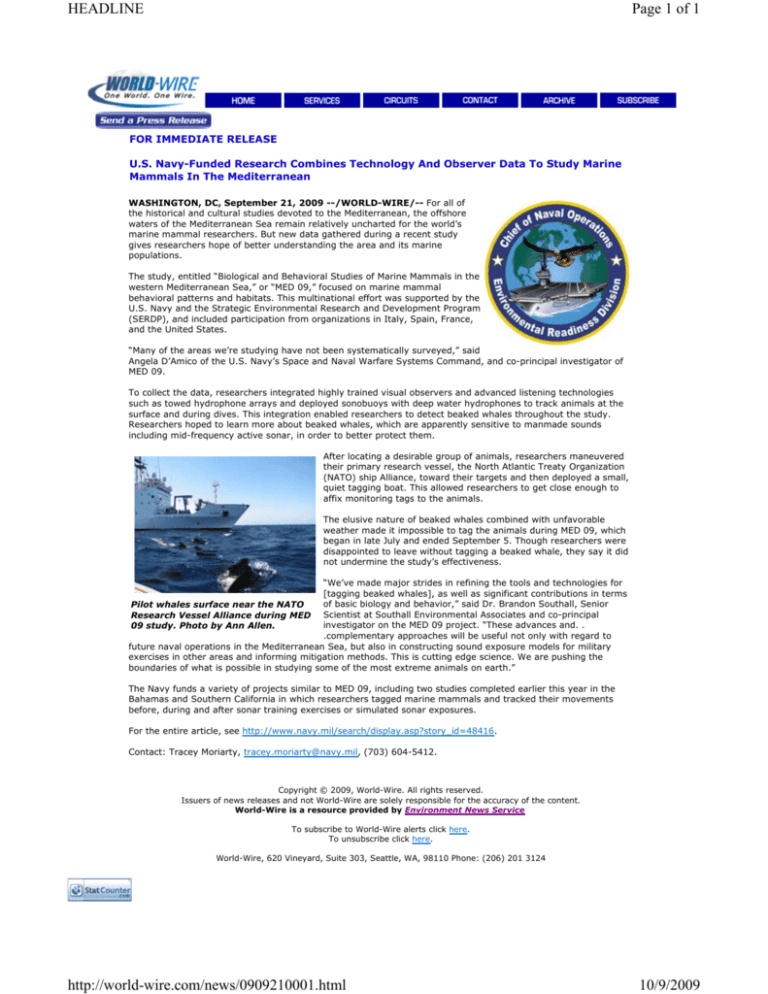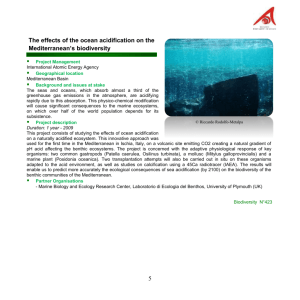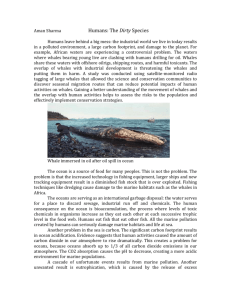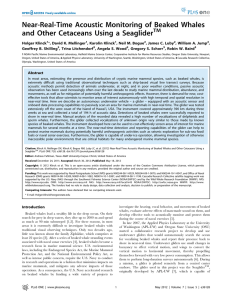
HEADLINE
Page 1 of 1
FOR IMMEDIATE RELEASE
U.S. Navy-Funded Research Combines Technology And Observer Data To Study Marine
Mammals In The Mediterranean
WASHINGTON, DC, September 21, 2009 --/WORLD-WIRE/-- For all of
the historical and cultural studies devoted to the Mediterranean, the offshore
waters of the Mediterranean Sea remain relatively uncharted for the world’s
marine mammal researchers. But new data gathered during a recent study
gives researchers hope of better understanding the area and its marine
populations.
The study, entitled “Biological and Behavioral Studies of Marine Mammals in the
western Mediterranean Sea,” or “MED 09,” focused on marine mammal
behavioral patterns and habitats. This multinational effort was supported by the
U.S. Navy and the Strategic Environmental Research and Development Program
(SERDP), and included participation from organizations in Italy, Spain, France,
and the United States.
“Many of the areas we’re studying have not been systematically surveyed,” said
Angela D’Amico of the U.S. Navy’s Space and Naval Warfare Systems Command, and co-principal investigator of
MED 09.
To collect the data, researchers integrated highly trained visual observers and advanced listening technologies
such as towed hydrophone arrays and deployed sonobuoys with deep water hydrophones to track animals at the
surface and during dives. This integration enabled researchers to detect beaked whales throughout the study.
Researchers hoped to learn more about beaked whales, which are apparently sensitive to manmade sounds
including mid-frequency active sonar, in order to better protect them.
After locating a desirable group of animals, researchers maneuvered
their primary research vessel, the North Atlantic Treaty Organization
(NATO) ship Alliance, toward their targets and then deployed a small,
quiet tagging boat. This allowed researchers to get close enough to
affix monitoring tags to the animals.
The elusive nature of beaked whales combined with unfavorable
weather made it impossible to tag the animals during MED 09, which
began in late July and ended September 5. Though researchers were
disappointed to leave without tagging a beaked whale, they say it did
not undermine the study’s effectiveness.
“We’ve made major strides in refining the tools and technologies for
[tagging beaked whales], as well as significant contributions in terms
of basic biology and behavior,” said Dr. Brandon Southall, Senior
Pilot whales surface near the NATO
Research Vessel Alliance during MED Scientist at Southall Environmental Associates and co-principal
investigator on the MED 09 project. “These advances and. .
09 study. Photo by Ann Allen.
.complementary approaches will be useful not only with regard to
future naval operations in the Mediterranean Sea, but also in constructing sound exposure models for military
exercises in other areas and informing mitigation methods. This is cutting edge science. We are pushing the
boundaries of what is possible in studying some of the most extreme animals on earth.”
The Navy funds a variety of projects similar to MED 09, including two studies completed earlier this year in the
Bahamas and Southern California in which researchers tagged marine mammals and tracked their movements
before, during and after sonar training exercises or simulated sonar exposures.
For the entire article, see http://www.navy.mil/search/display.asp?story_id=48416.
Contact: Tracey Moriarty, tracey.moriarty@navy.mil, (703) 604-5412.
Copyright © 2009, World-Wire. All rights reserved.
Issuers of news releases and not World-Wire are solely responsible for the accuracy of the content.
World-Wire is a resource provided by Environment News Service
To subscribe to World-Wire alerts click here.
To unsubscribe click here.
World-Wire, 620 Vineyard, Suite 303, Seattle, WA, 98110 Phone: (206) 201 3124
http://world-wire.com/news/0909210001.html
10/9/2009









